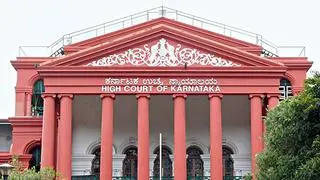What had the Supreme Court directed SBI to do on February 15, 2023?
While declaring the scheme unconstitutional on February 15, a five-judge Constitutional Bench directed SBI to submit details of the Electoral Bonds purchased since April 12, 2019 till date to the Election Commission of India. It wanted details including the date of purchase of each Electoral Bond, the name of the purchaser of the bond and the denomination of the Electoral Bond purchased.
SBI was also asked to disclose details of each Electoral Bond encashed by political parties which will include the date of encashment and the denomination of the Electoral Bond for the same period.
What were the difficulties that SBI was citing while seeking extension of the March 12 deadline for furnishing the information?
In its application to extend the due date for submission of information, SBI said details of purchases made at the branches are not maintained centrally at any one place. The data related to the issuance of the bond and the data related to the redemption of the bond was recorded in two different silos to ensure that donors’ anonymity is protected.
Further it mentioned that between April 12, 2019, and February 15, 2024 (date of judgment), 22,217 electoral bonds were used for making donations to various political parties. Redeemed bonds were deposited in Mumbai main branch by the authorised branches at the end of each phase in sealed envelopes.
Coupled with the fact that two different information silos existed, this would mean that a total of 44,434 information sets would have to be decoded, compiled and compared, the bank said while admitting that the timeline of three weeks fixed by the court in its judgment would not be sufficient for the entire exercise to be completed.
The Supreme Court has rejected this argument. The Court said the SBI’s submissions sufficiently indicate that the information is readily available. The Court did not buy the argument that SBI needs time until June 30 to compile the information that is already available with it. “You are the number 1 bank in the country. We expect you to handle it,” said the Court.
What is the significance of the purchase and redemption details of electoral bonds for political parties?
If names of the purchasers are made public and serial numbers are matched with redemption by a specific political party, the general public will know, who donated to which party. This will give ammunition for the ruling as well as Opposition parties to attack each other, with donors getting caught in the crossfire.
Senior advocate Harish Salve, for the SBI, explained that matching the bonds purchased and names of donors with the parties which redeemed the bonds was a “time-consuming and complex” exercise. Details were kept in two separate silos and not stored in a digital format. The judgment had capsized the “core purpose” of the electoral bonds scheme, which was “utmost secrecy”.
The Court, however, said that it had not directed the SBI to match the details of the donor and the donee. “The SBI has to just open the sealed cover, collate the details and give the information to the Election Commission,” Court said
What has the Supreme Court ruled regarding the extension of the deadline on Monday?
The bench said that the submissions of SBI in its application indicates that information sought is readily available. Thus, the application by SBI seeking time until June 30 for disclosing the details was dismissed
What next? Will SBI be in contempt of court if it fails to comply with the apex court directive?
The court said it did not want to initiate contempt proceedings against the SBI as of now. However, the Bench said it was putting the bank on notice, saying it would take action if SBI did not comply with the directions of March 11.







